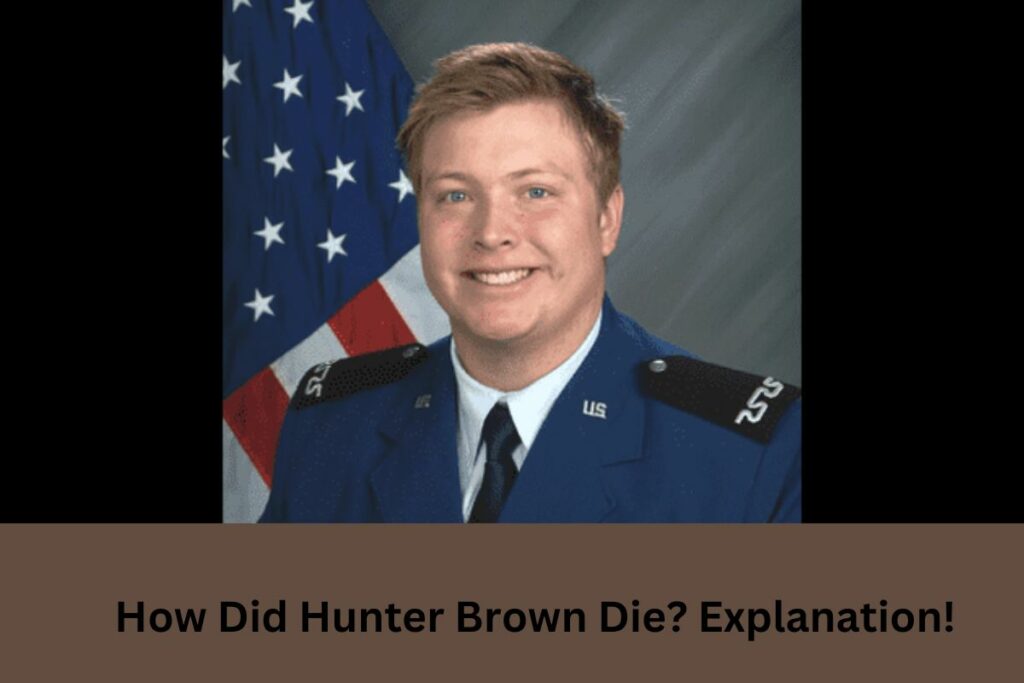According to the Academy, an offensive lineman for the Air Force Falcons named Hunter Brown passed away early in the morning of Monday, January 9. He had just turned 21 years old. Brown, who was a member of Cadet Squadron 16 and hailed from Lake Charles, Louisiana, was an outstanding offensive lineman for the Falcons football team in 2022, according to Lieutenant General Richard M. Clark, who is the chief of the United States Air Force Academy.
How Did Hunter Brown Die?
Brown reportedly experienced a medical emergency while he was exiting his dorm room on his way to class, as stated by the Air Force. When first responders arrived at the site, they immediately began attempting to save his life, but they were unable to do so.
There is currently no evidence to suggest a particular cause of death. An investigation is currently being carried out by the El Paso County Sheriff’s Office and the Air Force Office of Special Investigations. Superintendent Clark said the following in a statement that was distributed on Tuesday: “The members of Hunter’s squadron held a high regard for him due to his stellar performance as an offensive lineman for the Falcon football team.
Read More:
- Russell Banks, Praised Author of ‘cloud splitter,’ Dies at 82
- Utah Ski Resort Employee Dies After Being Ejected From Chairlift
The United States Air Force Academy is saddened by his passing, and our thoughts and condolences go out to his family, his squadron, and everyone else who was influenced in some way by this remarkable young man.” Before classes started today, Brigadier General Paul D. Moga, who serves as the Commandant of Cadets, assembled the cadet wing. Moga started off her speech by saying, “It is with a heavy heart and tremendous regret that I share with you that we have lost one of our own.”
Friends, sad comrades, a grieving cadet wing, and a bereaved family are some of the people he leaves behind. Moga reassured the cadets that they wouldn’t have to deal with the loss on their own because there was a vast array of support services available for the cadets, teachers, and staff of the Academy.
These support services included Academy chaplains and mental health specialists. Moga’s words were reassuring to the cadets. Cadets could use the services offered in the morning rather than going to their classes.
On their Instagram account, Air Force Football also paid tribute to Brown and expressed their sorrow for his passing, writing, “The death of our buddy, brother, and comrade has left us in utter disbelief and devastation. Everyone who knew Hunter agrees that he was an outstanding young guy, and they will miss him dearly.
Everyone who had the good fortune to know him and be a part of his life—including his family, friends, teammates, and our staff—receives our most heartfelt regrets and sympathy. Hunter Brown, may you finally rest in peace.”
The head coach of the football team, Troy Calhoun, stated that “Our team, our coaching staff, and the entire Academy have counted themselves very grateful and lucky to have Hunter as a constant presence in our lives. He was an absolute pleasure to have on the team and to work with as a coach.
He was tough, a hard worker, and no one worked harder for the benefit of others in a selfless manner than Hunter did. His parents, Candyce and Dustin, did an amazing job raising a lovely son who has helped all of us become better people. Our love goes out to our wonderful brother, and we are keeping Hunter’s beautiful soul and his family in our thoughts and prayers at this time.”
At that time, Brown was attending the Air Force Academy in order to earn a degree in management and a minor in French. In Louisiana, he received his high school education from Barbe. On their Twitter page, his high school expressed their grief over the loss of “one of our favorite boys” by writing, “We are heartbroken by the departure of one of our beloved sons.” “Both on and off the field, Hunter Brown was a dominant presence. Please say a prayer with the Buc Family for everyone who cared for and loved him.”

